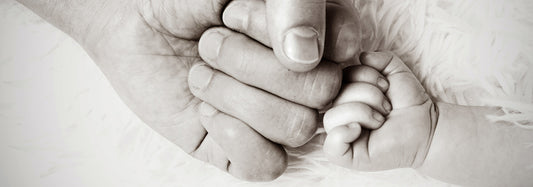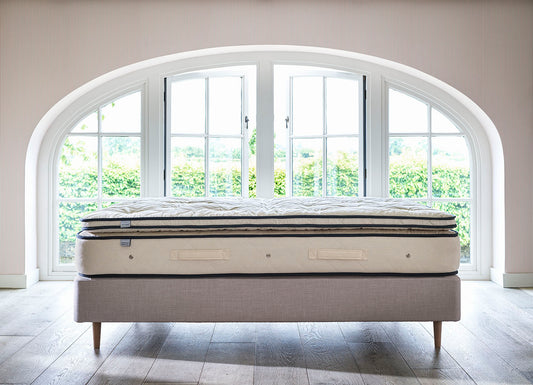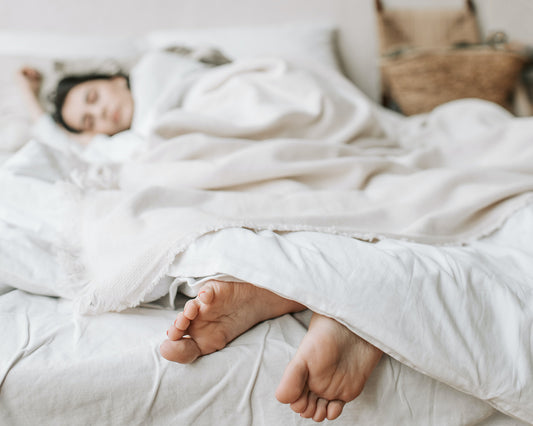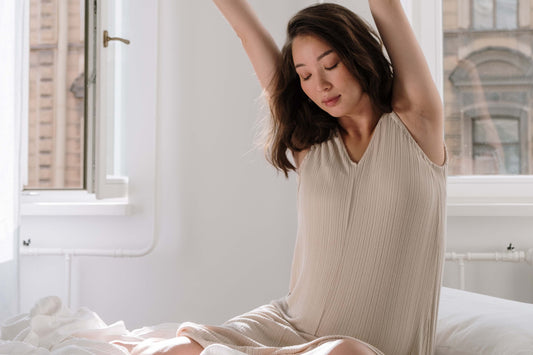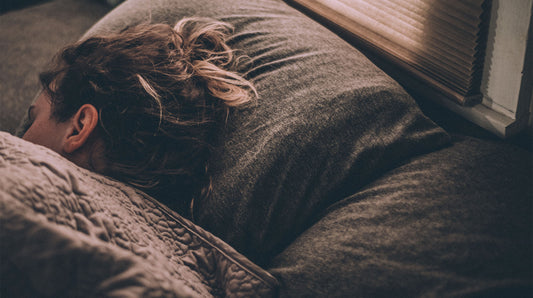Do you struggle to sleep when the temperature's not right? Our resident Sleep Expert, Christabel Majendie has some handy tips to help.
We may not be celebrating this year’s English summer but some people may be grateful that their sleep has not been disrupted by sweltering nights. Room and body temperature are major factors when it comes to sleep disruption so getting this right may help you get a good night’s sleep. Daylight is also a major influence on sleep as it affects our circadian rhythm or body clock.
Here are some tips to help you sleep during hot spells or cold snaps and how to deal with seasonal variations in daylight and noise.
What is season change insomnia?
The changing seasons also bring with them drastic variations in temperature and the amount of daylight we are exposed to, which can interfere with melatonin production. Difficulty sleeping as a result of these environmental changes is sometimes known as season change insomnia or seasonal insomnia.
Hot spells
If you have difficulty sleeping in summer or high temperature, make sure you are comfortable with appropriate bed covers for the time of year, and remember that your choice of mattress is important too. Natural fibres such as cotton or feathers absorb more body sweat and will aid body temperature regulation better than synthetic ones.
If the room is too hot, you may have more night wakings, restless body movements and less REM sleep (dream sleep which is essential for learning and memory). Aim for between 16-20 degrees. On very hot days, keep blinds down or curtains drawn to keep the bedroom cool.
Consider the air quality, as a stuffy room can cause uncomfortable sleep, while fresh air may promote it. Maybe give your room a blast of fresh air by opening the window in the early morning or early evening.
Some people who have difficulty sleeping in summer find a fan helps, others find the noise irritates them and anything that gets your back up will stop you sleeping. During really hot spells, cool showers may help to reduce body temperature before bed.
Make sure you are well hydrated throughout the day so you don’t go to bed thirsty or wake up gasping for water. And avoid vigorous exercise in the few hours before bed as not only will you increase your body temperature but this will stimulate your nervous system reducing your chances of dropping off to sleep or staying asleep.
For more tips on how to sleep in hot weather, please read our guide: How to Sleep in Hot Weather
Cold nights
Contrary to popular belief, we sleep better in a cool environment, but season change insomnia can strike in the winter months too. A room that is too cold, say less than 12 degrees, can make it difficult to get to sleep so set your thermostat to the correct level.
Aim to regulate your body temperature with your bedding rather than through central heating. Use a good quality duvet and pillows with natural fibres and puff these up regularly to increase the air content to increase insulation.
Try taking a bath before bedtime to warm up your core body temperature. When your body temperature cools down, as it does after a bath, this is a trigger for your brain to drop off to sleep. This is why we encourage a bath as part of children’s bedtime routines.
It also may help you to relax which will make you more likely to drop off to sleep. However, you don’t want to be too hot before bedtime so try having a bath an hour before bed.
For more tips on how to keep warm in the cold months, please read our guide: How to Keep Warm in Bed This Winter
Daylight
Light is a major controlling factor in the circadian rhythm or the body clock, and exposure to daylight is one of the major causes of season change insomnia. This is because it inhibits the production of melatonin, a hormone involved in the sleep-wake cycle.
Studies show that in the summer months, melatonin production in the body, sleep times and corresponding changes in body temperature happen earlier in the evening compared to in winter. This is due to light exposure earlier in the morning which shifts the timing of sleep. In countries with large seasonal variations such as Norway, these effects are greatest but are marginal in countries with small seasonal variation such as in Africa.
Light exposure is often used as a treatment for circadian disorder, a sleep disorder where the body clock is out of sync with the natural environment. It can also be used to aid jetlag and Seasonal Affective Disorder (SAD), the main symptom of which is low mood in the winter months. The timing of light exposure is crucial in all cases and must be guided by a doctor or health professional.
Because of light’s strong influence on sleep, it is best to use thick blinds or curtains if sunlight disturbs your early morning sleep in the summer or if bright street lamps seep into your bedroom at any time during the year. Some people find an eye mask helpful but be careful that you don’t become dependent on it to get to sleep as you will lose confidence in your natural ability to drop off and this may contribute towards sleep problems.
Noise
In the urban environment, longer days and warmer nights sometimes mean noisier evenings as people spend more time outside late into the night. If this is a problem for you, consider wearing earplugs but again avoid dependency on these. Double glazing may also be a solution and will help with those winter nights but it is a more expensive fix.
Relocating to a spare room may be a temporary option or it may be that you need to reconsider where your main bedroom is; those higher up or away from the street will be quieter.
Choosing the right bedding
If you have trouble sleeping in the summer or the winter, having seasonally appropriate natural bedding could be a huge help, provided you have the storage space to keep a spare set.
All duvets have a tog rating, which refers to the heat retention properties of the material, with a lower tog rating being better for higher temperatures such as in summer, and higher tog ratings being better for winter. You can read our tog guide to learn about this in more detail.
Tog rating isn’t everything however, and the type of material your bedding is made out of has a huge impact on breathability, and ultimately, your ability to sleep well through varying temperatures. Our summer bedding is just what you need for spring and summer, and our cold weather bedding will keep you cosy throughout the colder autumn and winter days.



